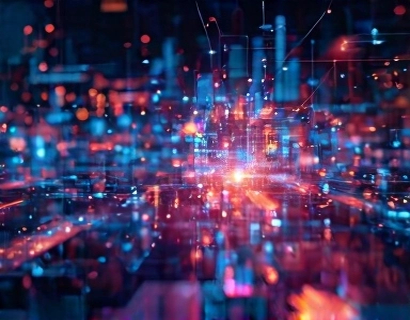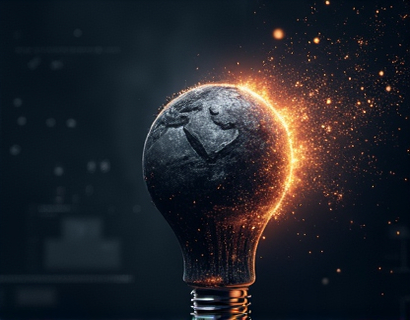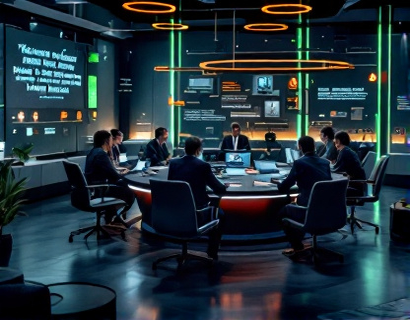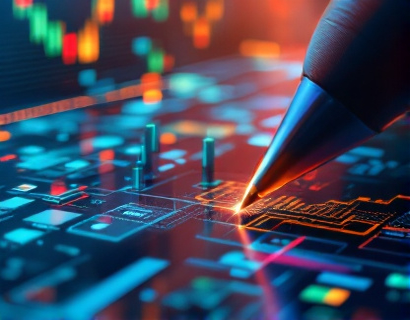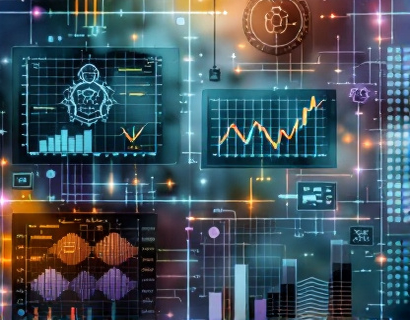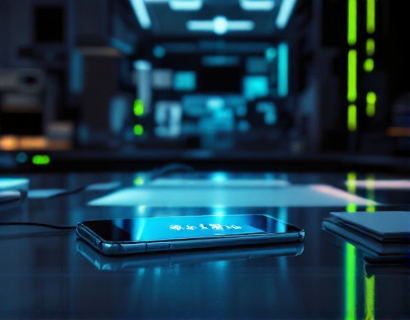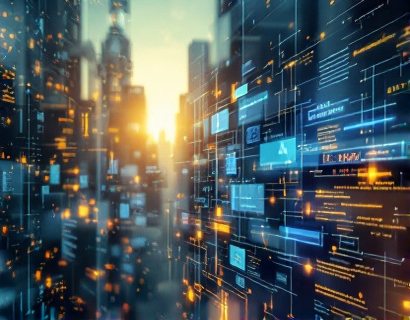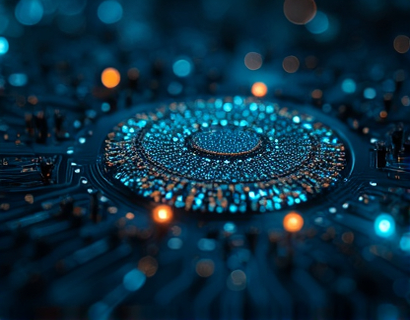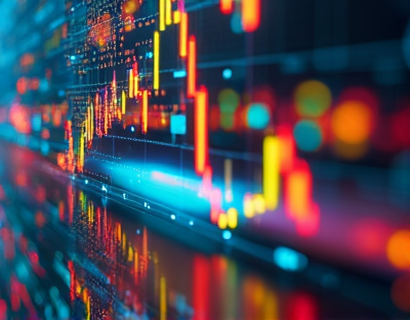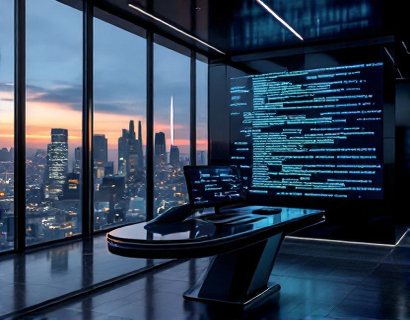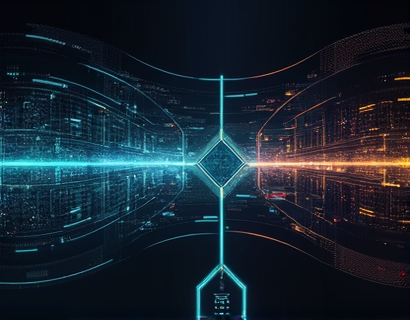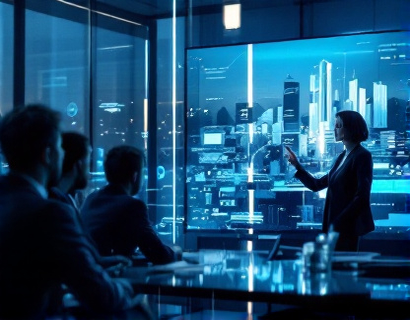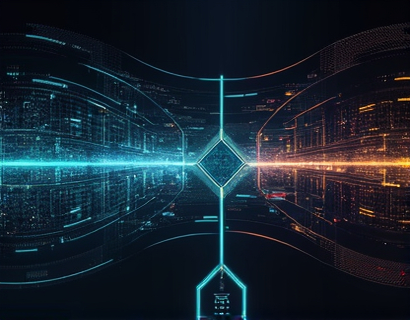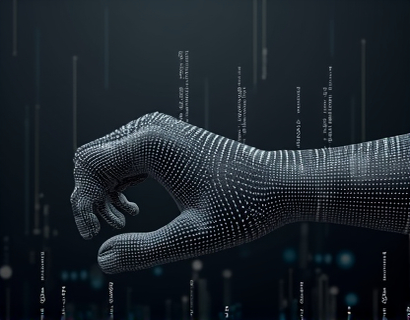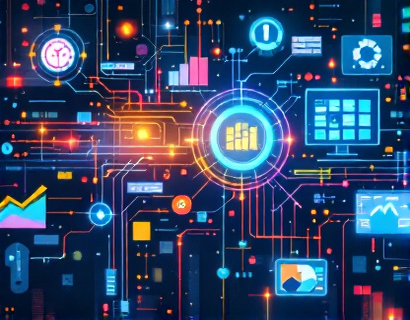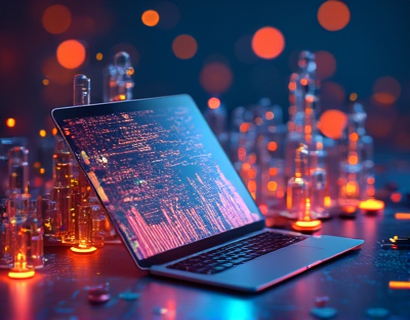Revolutionizing Digital Experiences: The Synergy of AI and Crypto in the Decentralized Economy
The intersection of artificial intelligence and blockchain technology is giving rise to a new era of digital experiences, fundamentally transforming the decentralized economy. This fusion is not just an incremental advancement but a revolutionary shift that is redefining how we interact with digital platforms and services. As tech professionals and enthusiasts, understanding this synergy is crucial for navigating the future of decentralized applications and digital transformation.
The deployment of AI in the blockchain ecosystem brings a level of sophistication and efficiency that was previously unattainable. AI algorithms can process vast amounts of data on the blockchain, enabling smarter, more responsive, and secure applications. This combination is particularly potent in enhancing user interactions, optimizing operations, and unlocking new growth opportunities.
Enhanced User Interactions
One of the most immediate impacts of AI integrated with blockchain is the enhancement of user interactions. Traditional blockchain applications often suffer from usability issues, primarily due to their complex nature and the technical expertise required to interact with them. AI-driven interfaces can simplify these interactions, making blockchain technology more accessible to a broader audience.
For instance, AI-powered chatbots and virtual assistants can guide users through complex blockchain operations, providing real-time support and personalized recommendations. These AI entities can understand natural language queries, reducing the learning curve and making the user experience smoother and more intuitive. This not only increases user engagement but also fosters a more inclusive environment where non-technical users can benefit from blockchain's advantages.
Smart Contract Optimization
Smart contracts, a cornerstone of blockchain technology, are being significantly enhanced by AI. Traditionally, smart contracts are static and follow predefined rules without the ability to adapt to changing conditions. AI introduces a dynamic element, allowing smart contracts to learn from past interactions and adapt their behavior accordingly.
This adaptability can lead to more efficient and reliable contract execution. For example, AI can analyze market conditions and automatically adjust the terms of a smart contract to optimize outcomes for all parties involved. This not only reduces the risk of disputes but also enhances trust in decentralized transactions. Moreover, AI can help in identifying potential vulnerabilities in smart contracts, improving their security and robustness.
Decentralized Finance (DeFi) Innovations
The DeFi space is one of the most vibrant areas where AI and blockchain converge. DeFi platforms are leveraging AI to create more sophisticated financial instruments and services. AI algorithms can analyze vast datasets to predict market trends, manage risks, and optimize portfolios, providing users with data-driven insights and automated trading strategies.
One notable application is the development of AI-driven lending and borrowing platforms. These platforms use machine learning to assess creditworthiness more accurately, reducing the need for traditional credit checks and making financial services more accessible. Additionally, AI can help in detecting and preventing fraudulent activities, ensuring a safer environment for users.
Supply Chain Transparency and Efficiency
Beyond finance, the combination of AI and blockchain is revolutionizing supply chain management. The decentralized nature of blockchain ensures transparency and traceability, while AI enhances the efficiency and accuracy of supply chain operations. AI can analyze data from various sources, including IoT devices, to predict demand, optimize inventory levels, and streamline logistics.
For example, AI-powered systems can monitor the entire supply chain in real-time, identifying bottlenecks and suggesting optimizations. This not only reduces costs but also minimizes waste and environmental impact. Blockchain ensures that all transactions and movements are recorded immutably, providing a tamper-proof record that enhances trust among all stakeholders.
Content Creation and Intellectual Property
The creative industry is another domain where AI and blockchain are making significant strides. AI can assist in content creation, from generating music and art to writing articles and scripts. This collaboration between AI and human creativity opens up new possibilities for content production and distribution.
Blockchain, with its ability to securely and transparently manage ownership and rights, complements AI-generated content. Artists and creators can use blockchain to prove ownership and manage royalties, ensuring fair compensation for their work. AI can also help in verifying the authenticity of digital assets, reducing the prevalence of piracy and unauthorized use.
Decentralized Identity Management
Identity verification and management are critical components of the digital economy, and the combination of AI and blockchain offers a robust solution. Traditional identity systems are centralized, vulnerable to breaches, and often inflexible. Decentralized identity solutions leverage blockchain to create secure, user-controlled identity wallets, while AI enhances the verification process.
AI algorithms can analyze multiple data points to verify identities with high accuracy, reducing the risk of fraud. This not only improves security but also provides users with greater control over their personal data. Users can choose what information to share and with whom, fostering a more privacy-conscious digital environment.
Challenges and Considerations
Despite the numerous benefits, the integration of AI and blockchain in the decentralized economy is not without challenges. One of the primary concerns is scalability. Both AI and blockchain technologies face scalability issues, and their combination can exacerbate these problems. Ensuring that systems can handle large volumes of data and transactions efficiently is crucial for widespread adoption.
Another consideration is the regulatory landscape. The decentralized nature of these technologies often conflicts with traditional regulatory frameworks. Striking a balance between innovation and compliance is essential to foster a healthy ecosystem. Collaboration between technologists, policymakers, and industry stakeholders is necessary to develop regulations that support growth while protecting users.
Future Prospects
The future of AI and blockchain in the decentralized economy looks promising. As technology continues to evolve, we can expect more seamless integration and innovative applications. The development of more efficient consensus mechanisms, advancements in AI algorithms, and the proliferation of 5G and beyond will further enhance the capabilities of these technologies.
Moreover, the growing awareness and acceptance of blockchain and AI among businesses and consumers will drive adoption. As more organizations recognize the potential of these technologies, we can anticipate a surge in decentralized applications that transform various industries, from healthcare to education.
In conclusion, the fusion of AI and blockchain is not just a technological trend but a fundamental shift in how we approach digital experiences. By enhancing user interactions, optimizing smart contracts, revolutionizing DeFi, improving supply chain management, and addressing identity challenges, this synergy is paving the way for a more secure, efficient, and inclusive decentralized economy. As tech professionals and enthusiasts, embracing this evolution is key to unlocking the full potential of the digital future.





